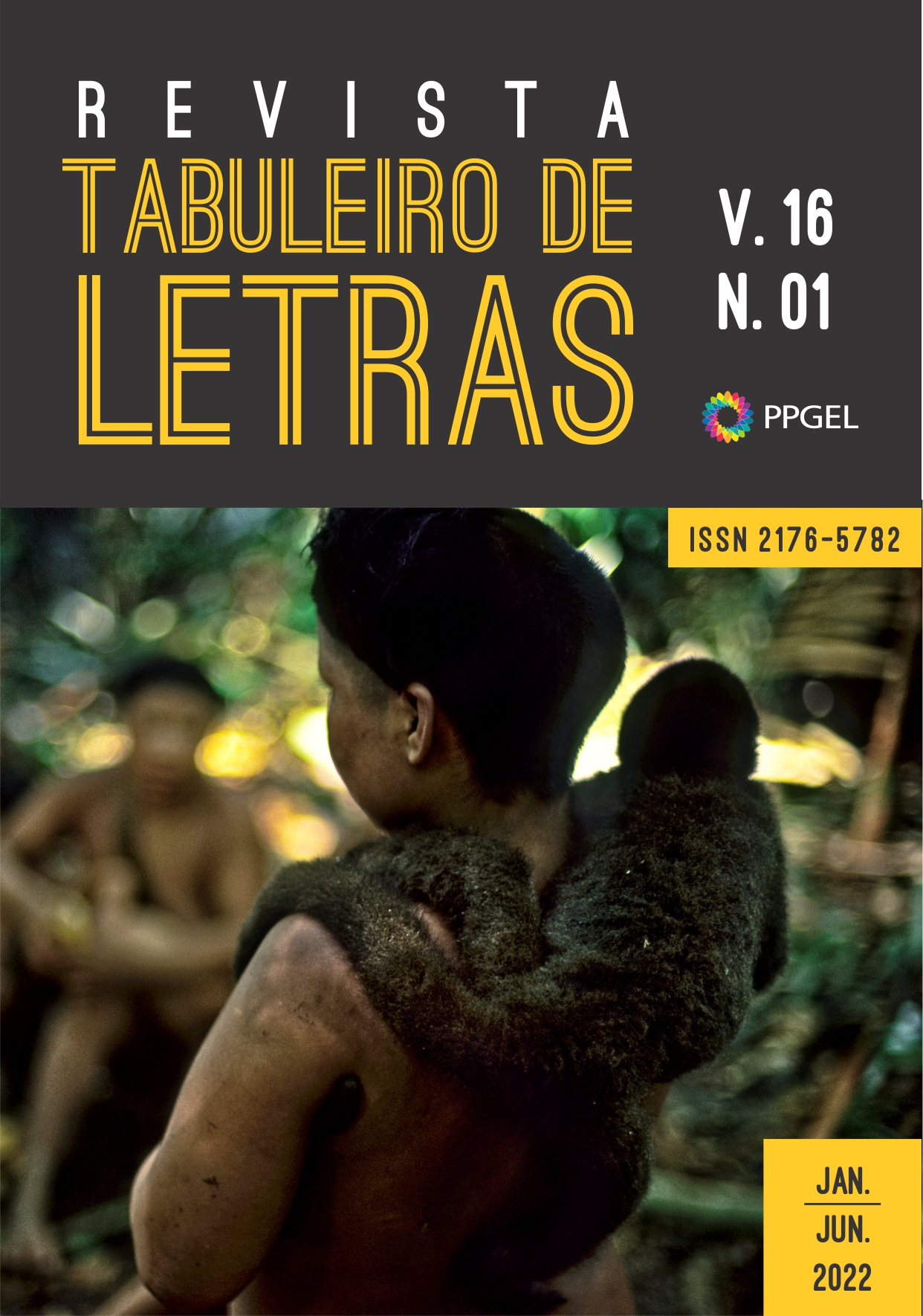Nomear é chamar à existência: a nomeação de Deus e do Diabo em Hilda Hilst e Guimarães Rosa
DOI:
https://doi.org/10.35499/tl.v16i1.13564Abstract
In 1987, the writer and literature critic Oscar D’Ambrósio publishes in the newspaper Estado de São Paulo an article named: “Guimarães Rosa encontra seu duplo: Hilda Hilst.” Starting from this literary identification and finding support in interviews given by the author, where she recognized not only the poetic proximity of their works, but also his influence on her, and her fondness for him, this work aims to investigate a common feature of both authors, the obsessive process of naming God and the Devil. Making God one of her investigations not only in literature, but also in philosophy and everyday life, Hilst put into prose, and poetry, her excruciating doubt about divine existence. On the other bank, we find Guimarães Rosa who, in Grande Sertão: Veredas, weaves a questioning character, unmoved in the face of doubt about the Devil's existence. Riobaldo, in his journey, conceived a vast onomastic and pictorial cartography of the one he so often says to avoid. A common feature in the authors, we will investigate the pressing need for naming, investigating the latent meaning of this almost Adamic process.
Downloads
References
BÍBLIA. Tradução de Almeida Revista e Atualizada. Barueri, São Paulo: Sociedade Bíblica do Brasil; Cultura Cristã, 2016.
COELHO, Kamilla Kristina Souza França. Deus, segundo os olhos críticos de Hilda Hilst e Gabriela Mistral. Linguagem: Estudos E Pesquisas, v. 10, n. 02, p. 111-125, jul/dez. 2010. Disponível em: https://revistas.ufg.br/lep/article/view/34378. Acesso em: 20 jun. 2021.
COUSTÉ, Alberto. Biografia do Diabo. Record, São Paulo, 1996.
COUTINHO, Eduardo F. (Org.). Guimarães Rosa. 2. ed. Rio de Janeiro: Civilização Brasileira, 1991.
D’AMBRÓSIO , Oscar. Guimarães Rosa encontra seu duplo: Hilda Hilst. O Estado de São Paulo, São Paulo. 02 jan. 1987. Divirta-se, não paginado.
ECO, Umberto. Sobre ombros de gigantes. Rio de Janeiro: Record, 2018.
HEIDEGGER, Martin. A caminho da linguagem. Tradução de Márcia Sá Cavalcante Schuback. Rio de Janeiro: Vozes, 2003.
HILST, Hilda. Da Poesia. São Paulo: Companhia das Letras, 2019.
JOSÉ DOMINGOS DE BRITO. Tiro de Letra, 2007. Conteúdos literários. Disponível em: http://www.tirodeletra.com.br/institucional/historia.htm. Acesso em: 20 jun 2021.
LIMA, Francisco Wellington Rodrigues. Guimarães Rosa e os resíduos do Diabo medieval em Grande Sertão: Veredas. Letras Escreve, Macapá, v. 5, n.2, p. 183-198, jul./dez. 2015. Disponível em: https://periodicos.unifap.br/index.php/letras/article/view/1895. Acesso em: 09 jul. 2021.
LIMA, Sônia Maria van Dijck. No tempo de Sagarana. O Eixo e a Roda: Revista de Literatura Brasileira, v. 12, p. 311-320, jun. 2006. Disponível em: <http://www.periodicos.letras.ufmg.br/index.php/o_eixo_ea_roda/article/view/3211>. Acesso em: 23 jun. 2021.
LINS, Á. Uma grande estreia. Correio da Manhã, Rio de Janeiro, 12 abr. 1946. Jornal de crítica. Arq. JGR-IEB/USP-R1.
PÉCORA, Alcir. Por que ler Hilda Hilst. São Paulo: Globo, 2010.
PLATÃO. Crátilo, ou sobre a correção dos nomes. Tradução de Celso Oliveira. São Paulo: Paulus, 2020.
ROSA, João Guimarães. Grande Sertão: Veredas. 19 ed. Rio de Janeiro: Nova Fronteira, 2001.
SILVA, Dora Ferreira da. O demoníaco em Grande Sertão: Veredas. São Paulo, Diálogo nº 8, novembro de 1957.
SHAKESPEARE, William. Romeu e Julieta. São Paulo: Ediouro, n/d.
Downloads
Published
How to Cite
Issue
Section
License
Autor(es) conservam os direitos de autor e concedem à Revista o direito de primeira publicação, com o trabalho simultaneamente licenciado sob a Licença Creative Commons Attribution que permite a partilha do trabalho com reconhecimento da autoria e publicação inicial nesta Revista.

















